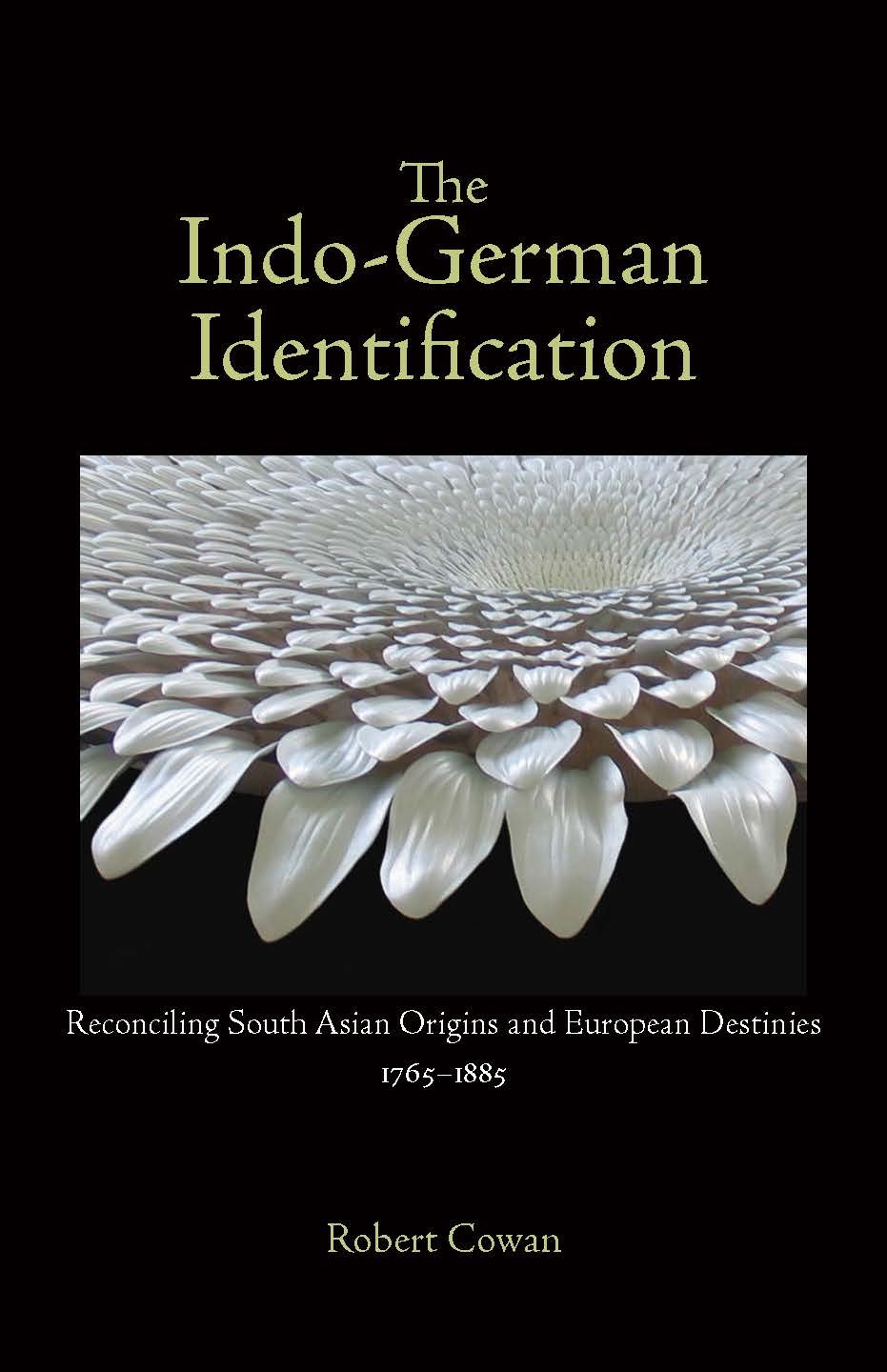The Indo-German Identification: Reconciling South Asian Origins and European Destinies, 1765-1885
| Camden House, Studies in German Literature, Linguistics and Culture, 2010
In the early nineteenth century, German intellectuals such as Novalis, Schelling, and Friedrich Schlegel, convinced that Germany's cultural origins lay in ancient India, attempted to reconcile these origins with their imagined destiny as saviors of a degenerate Europe, then shifted from "Indomania" to Indophobia when the attempt foundered. The philosophers Hegel, Schopenhauer, and, later, Nietzsche provided alternate views of the role of India in world history that would be disastrously misappropriated in the twentieth century. Reconstructing Hellenistic and humanist views of the ancient Brahmins and Goths, French-Enlightenment debates over the postdiluvian origins of the arts and sciences, and the Indophilia and protonationalism of Herder, Robert Cowan focuses on turning points in the development of an "Indo-German" ideal, an ideal less focused on intellectual imperialism than many studies of the "Aryan Myth" and Orientalism would have us believe. Cowan argues that the study of this ideal continues to offer lessons about cultural difference in the "post-national" twenty-first century.
Of great interest to historians, philosophers, and literary scholars, this cross-cultural study offers a new understanding of the Indo-German story by showing that attempts to establish identity necessarily involve a reconciliation of origins and destinies, of self and other, of individual and collective.
"Cowan brings a fresh perspective on Hegel, Schopenhauer and Nietzsche as well [...]. I found Cowan’s recognition that Nietzsche fails to reconcile the cyclical nature of South Asian philosophy with the linearity of European thought [...]. The wealth of information that Cowan provides about the personal philosophies of German intellectuals in the 18th and 19th centuries will undoubtedly prove very useful especially to those still unfamiliar with this area of knowledge."
- Kamakshi Murti, Middlebury College, German Quarterly 85.1 (Winter 2012)
"Robert Cowan’s book takes the scholarly discourse on German Orientalism in an important new direction with his thoroughly-researched and well-argued reminder that the subjects of our work were real human beings, real individuals, who brought their personal psychological, philosophical, religious, and political baggage to the reading table."
- Nicholas Germana, Keene State College, H-Soz-u-Kult (Humboldt Universität, Berlin) 06.01.2012
"Robert Cowan’s book is a welcome addition to the growing secondary literature on the influence of Indian thought and culture on Germany. [...] Cowan’s argument that Schlegel ultimately rejects Hinduism and Buddhism because they are based on concepts that do not have parallels in Christianity — specifically, the void — is cogent and well-argued. [...] One will not disagree that the influence of India on German thought has been profound, long-lasting, and, generally, under-examined. The Indo-German Identification helps to rectify this oversight."
- Kamaal Haque, Dickinson University, Goethe Yearbook 19 (2012)
